appropriate tense of the verb
to be + past
participle. Present Perfect Continuous, Future Continuous, Past Perfect Continuous are not normally used in the passive.
FindSlide.org - это сайт презентаций, докладов, шаблонов в формате PowerPoint.
Email: Нажмите что бы посмотреть
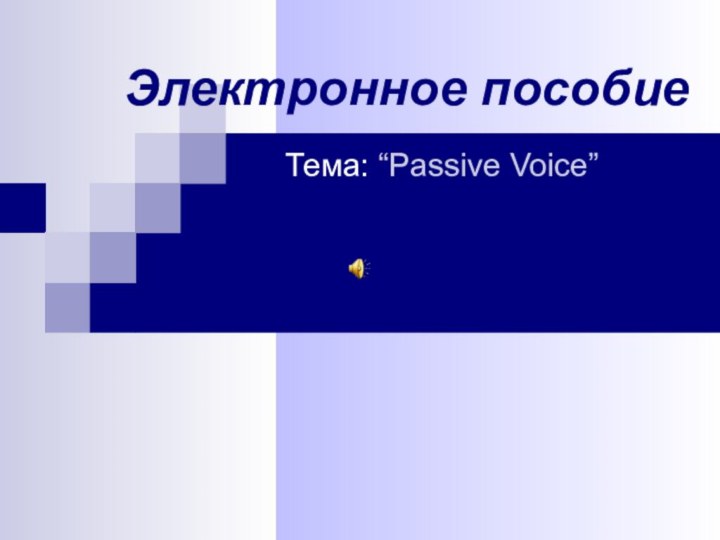
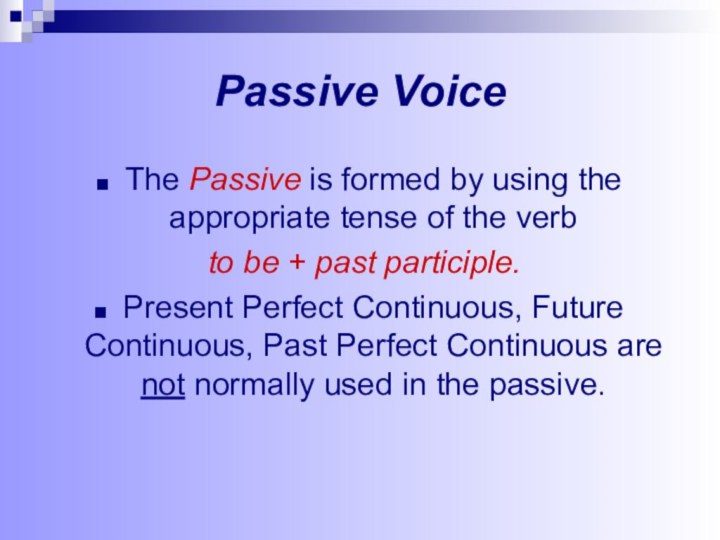
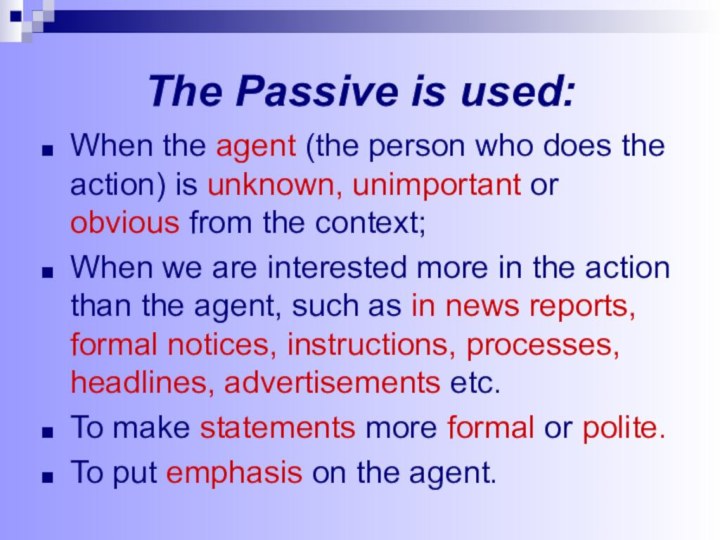

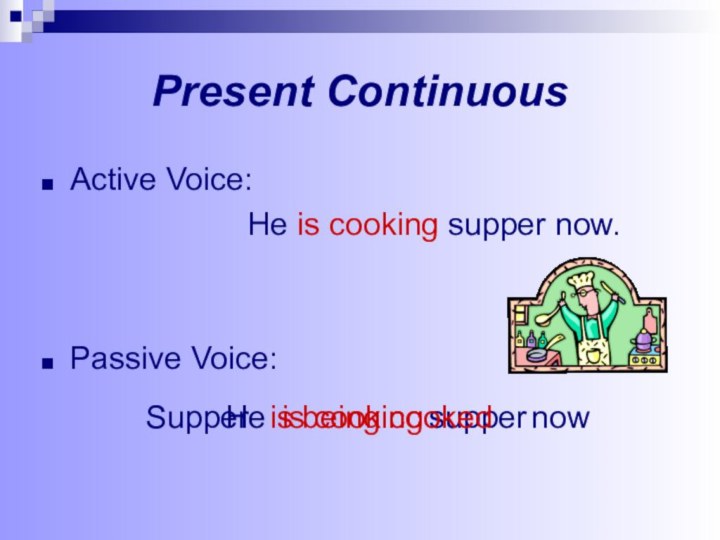
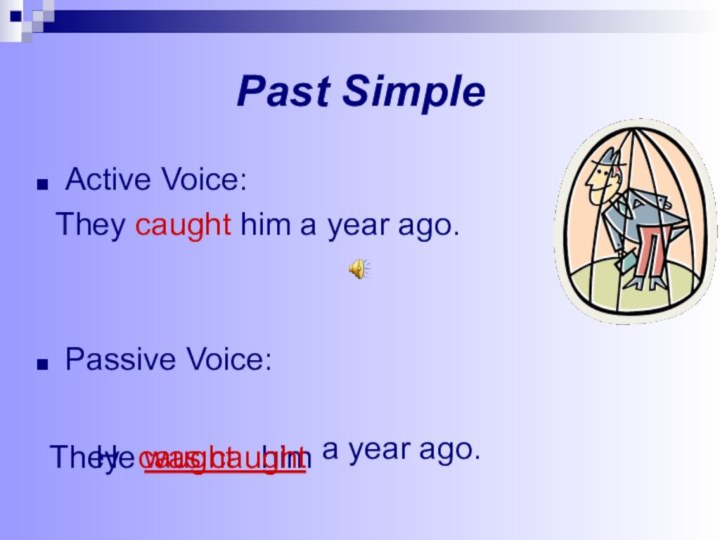


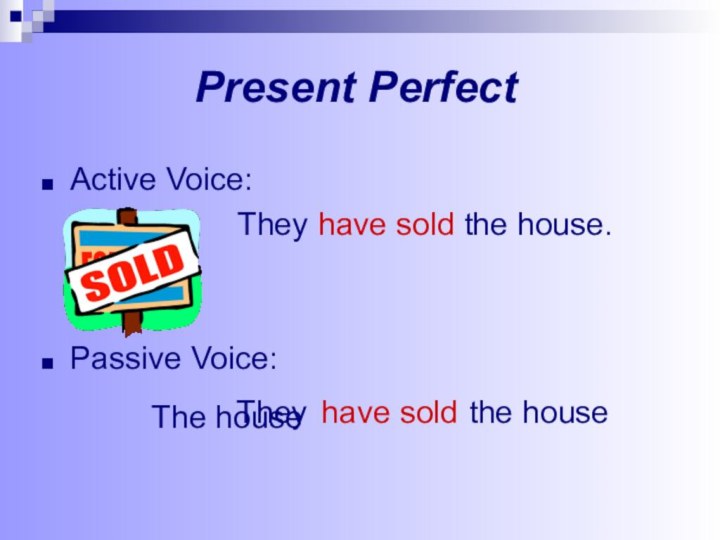



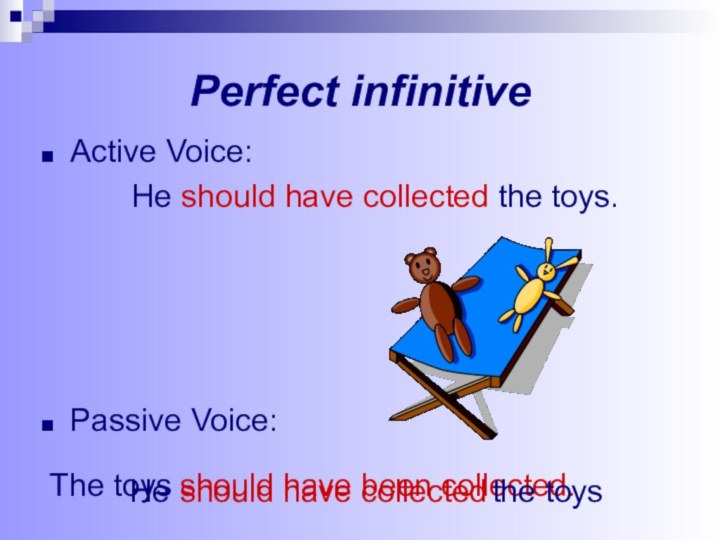
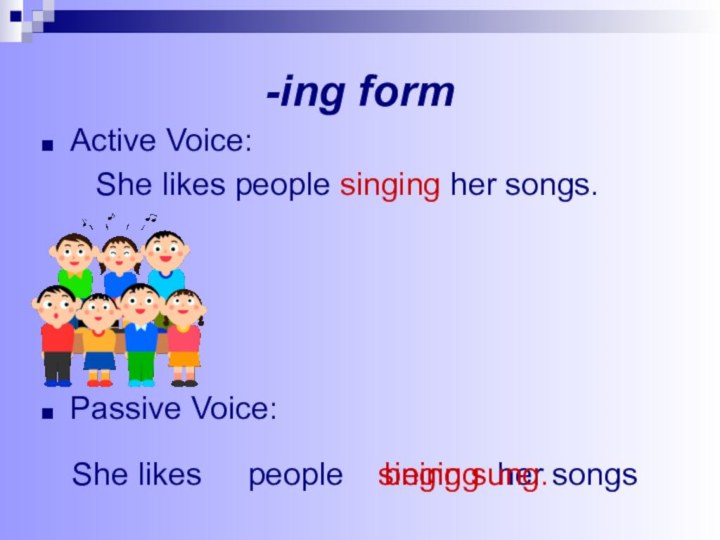
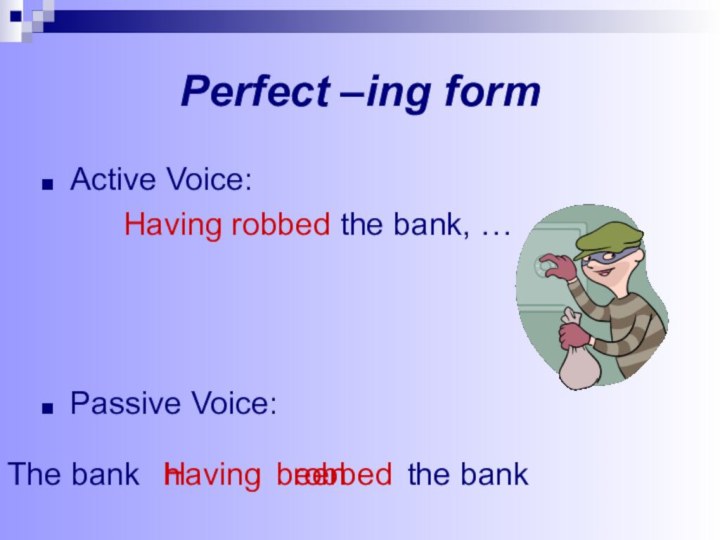


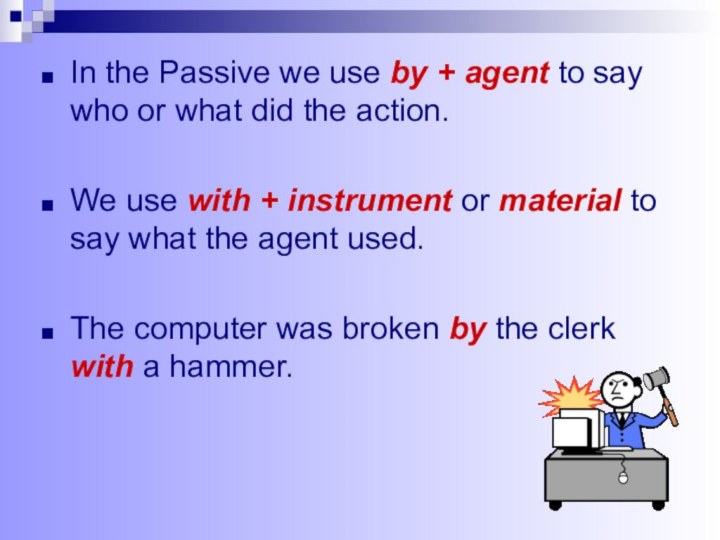





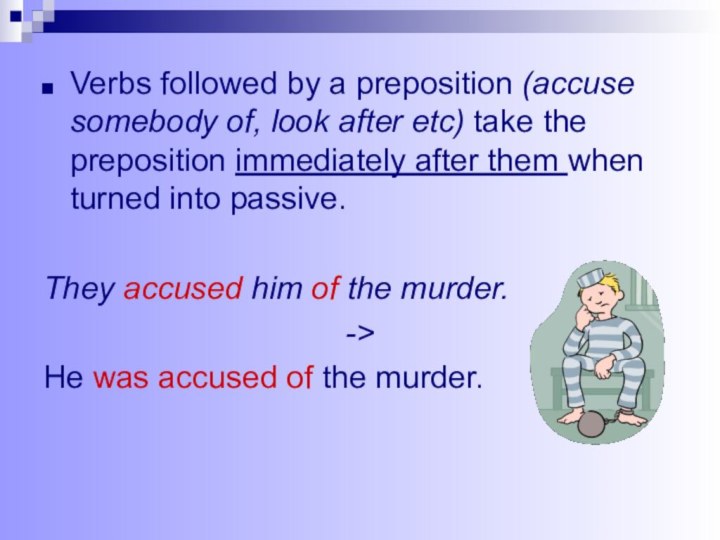
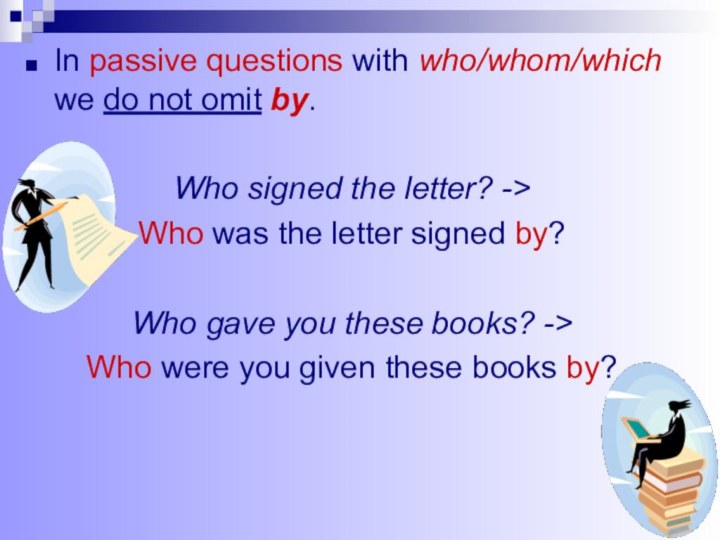
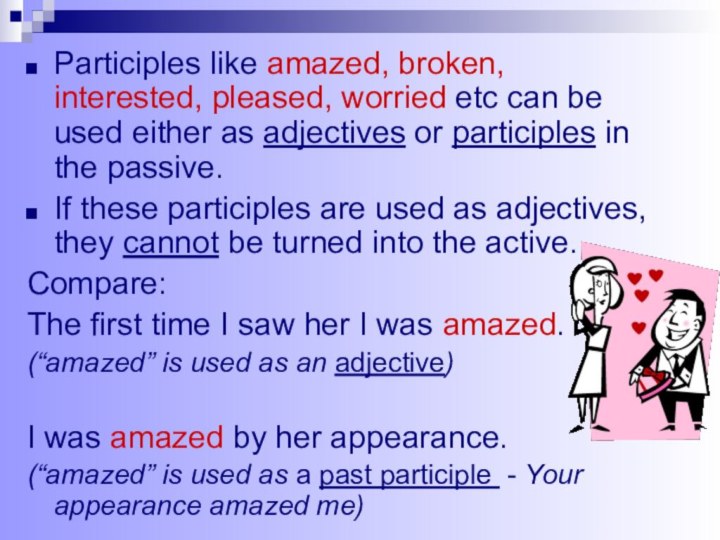
They
serve
dinner
at 6.00.
is served
Dinner
He
is cooking
supper
is being cooked
Supper
now
They caught him
He was caught
He
was writing
a letter
was being written.
A letter
They
will build
a new house
will be built.
A new house
They
have sold
the house
has been sold.
The house
They
will have cooked
buns
will have been cooked.
Buns
should have collected
the toys
The toys
You
must arrest
him
He
must be arrested
fed
the cat
A boy
The cat
was fed
by a boy